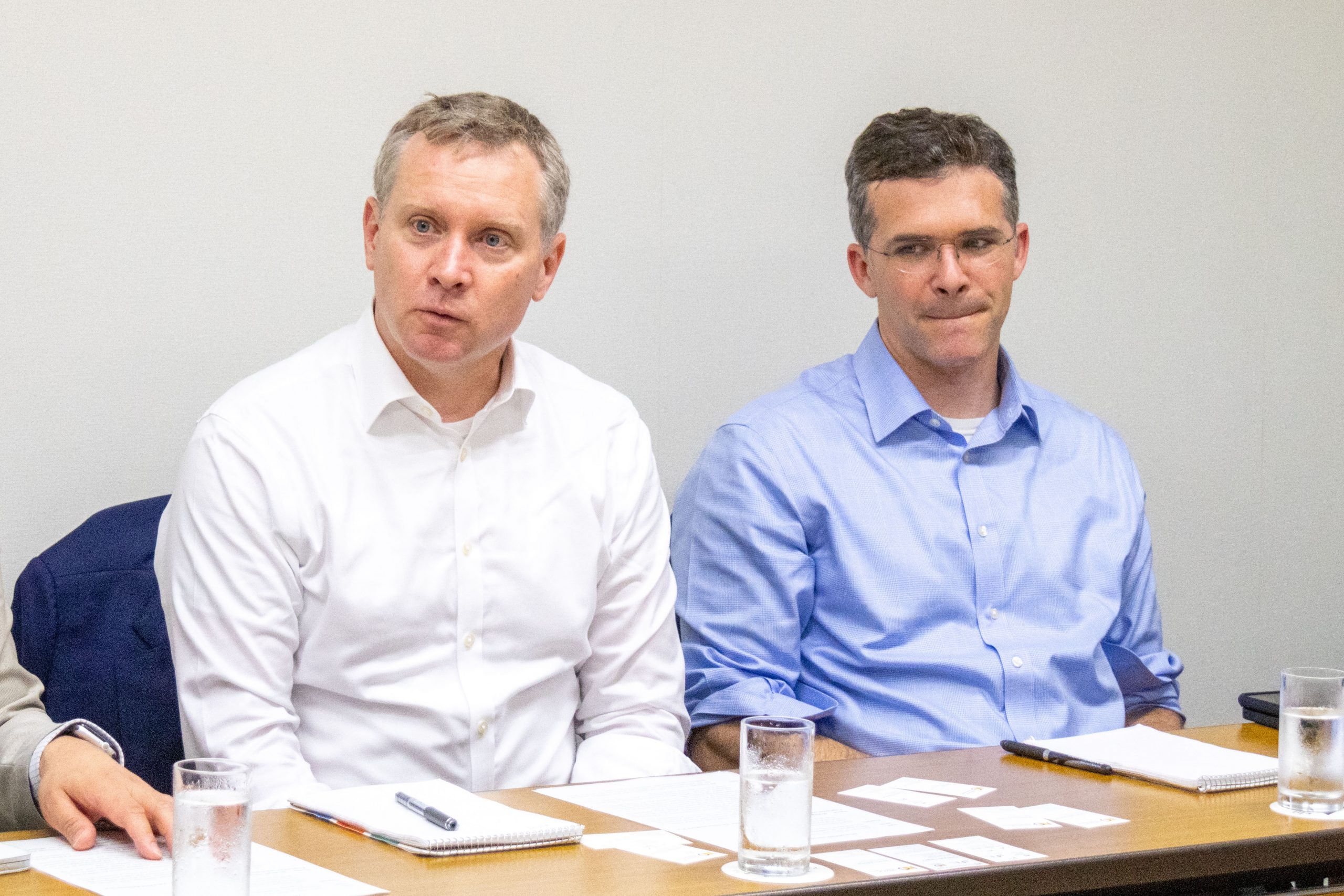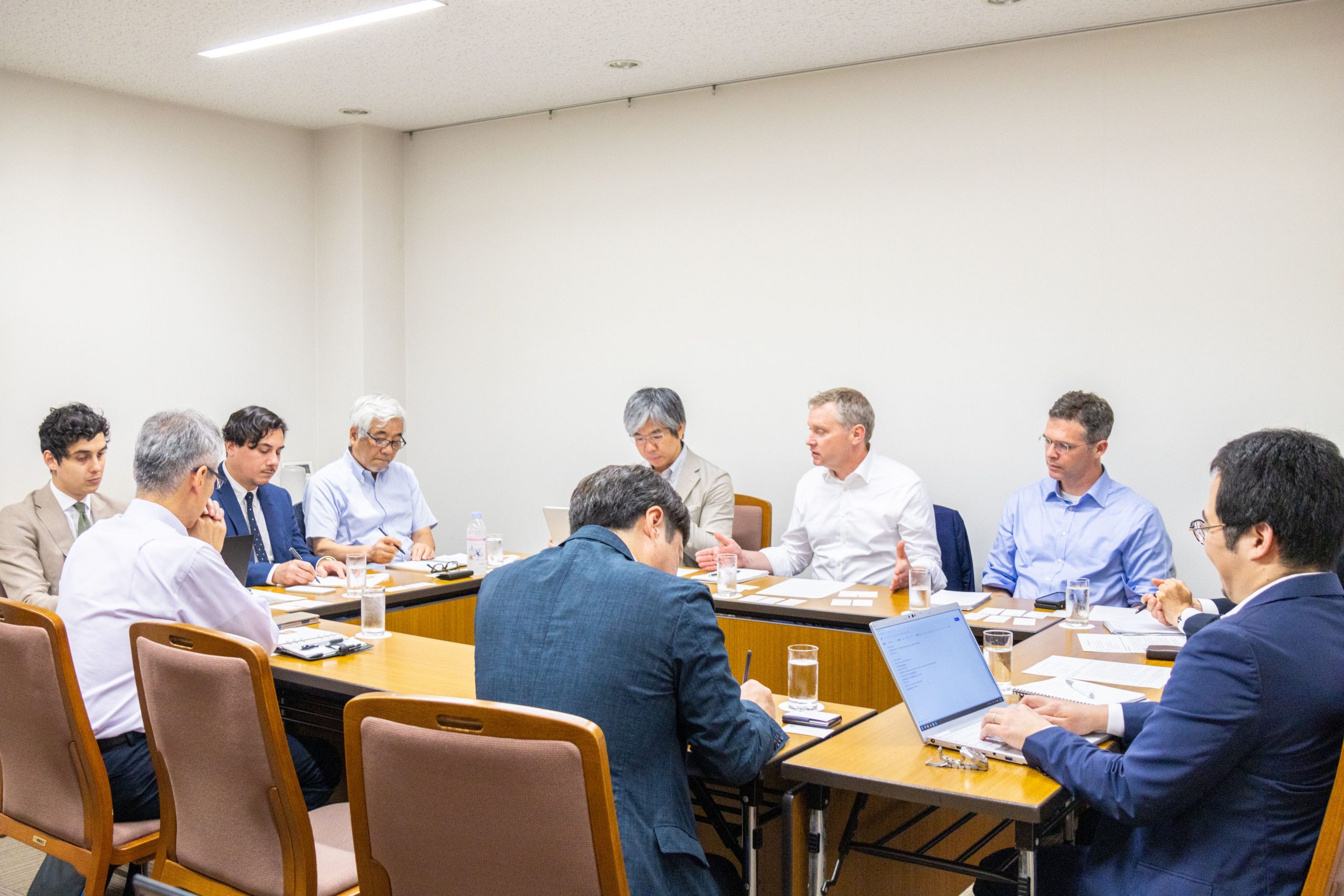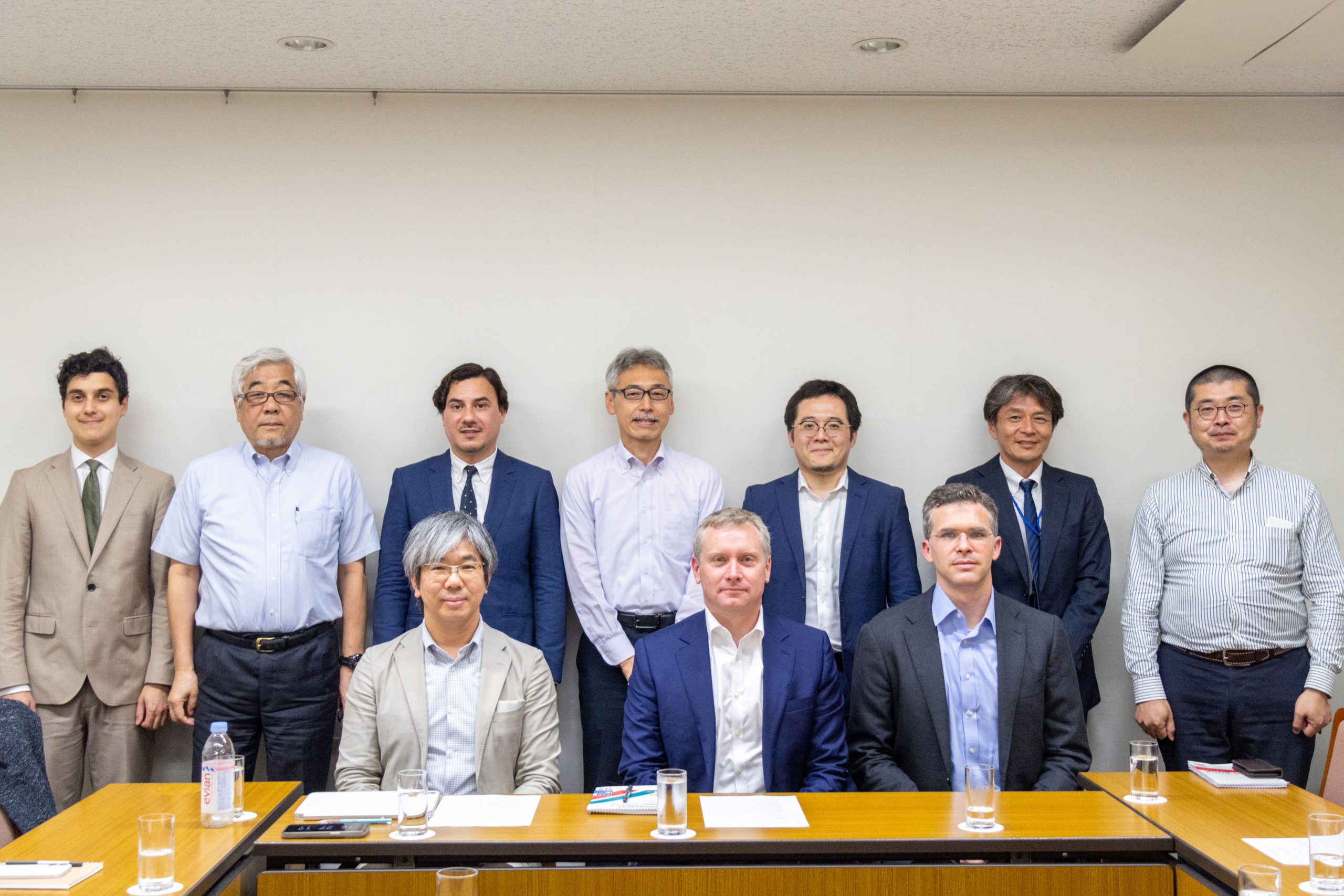On June 10, 2025, the Asia Pacific Initiative (API) hosted an API Roundtable at the International House of Japan, welcoming Mr. Oliver Melton, Financial Attaché at the U.S. Embassy in Beijing; Mr. Daniel Greenland, Financial Attaché at the U.S. Embassy in Tokyo; and Mr. Akira Maekawa, Japan Economist at the Financial Attaché’s Office, U.S. Embassy Tokyo. The discussion was held under the theme of “U.S.-China Economic Relations and Geoeconomic Competition.”
The session began with an introduction to API’s mission and role in Japan’s policy and business landscape. The guests then shared their current areas of focus, including developments in the tech industry, export controls, and industrial overcapacity in China.
Discussions first focused on Japan’s evolving economic security policy, which was shaped by the 2010 rare earth export restrictions by China. Since then, Japan has enhanced its supply chain resilience and designated 12 critical materials in 2024. Japan’s approach emphasizes providing guidance to companies over strict regulations and is reflected in key policy measures like the Economic Security Promotion Act. This legislation focuses on two pillars: strategic indispensability (protecting key technologies) and autonomy (diversification to avoid over-concentration of supply chains).
The conversation then turned to U.S.-China dynamics, particularly around China’s rare earth export controls. Participants discussed how these policies, while appearing retaliatory, could backfire by encouraging other countries to reduce their dependencies. The role of subsidies in maintaining China’s price competitiveness and the challenges other nations face in replicating such strategies were also explored. The American side noted Japan’s relatively advanced efforts in developing domestic manufacturing capacities and building public-private trust.
Japan’s strategy has centered on centralized coordination with the Cabinet and closer cooperation with the Ministry of Economy, Trade and Industry (METI). In contrast, the EU faces significant friction between businesses and policymakers. Despite growing concerns over technology transfers to China, Japanese investments in China have continued to rise since 2010, highlighting Beijing’s effectiveness in attracting foreign firms to produce locally.
The issue of industrial overcapacity was highlighted as a major challenge driven by Chinese policies to build global champions. Local governments in China often prevent industry consolidation, contributing to market distortions and global trade imbalances. The roundtable participants agreed that this trend is likely to persist across emerging industries such as robotics and pharmaceuticals.
In the latter half of the session, discussions covered intelligence gathering limitations in Japan, the fluctuation of rare earth prices, and ideas for international cooperation on pricing mechanisms. Participants noted the importance of coordinated efforts between the U.S., Europe, Japan, and South Korea in addressing Chinese subsidies and securing critical minerals.
The roundtable also examined the complementary nature of U.S. and Chinese economic challenges—overcapacity in China versus undercapacity in the U.S.—and considered how mutual understanding might help reduce systemic tensions. Finally, participants touched on the risks posed by technology leakage from startups and the efforts underway in Japan, including new initiatives within the National Security Secretariat and METI, to safeguard innovation.
This roundtable provided a timely and insightful platform for in-depth dialogue on shared challenges in the evolving geoeconomic landscape, reaffirming the importance of U.S.-Japan cooperation in navigating global economic and security complexities.




 APIニュースレター 登録
APIニュースレター 登録